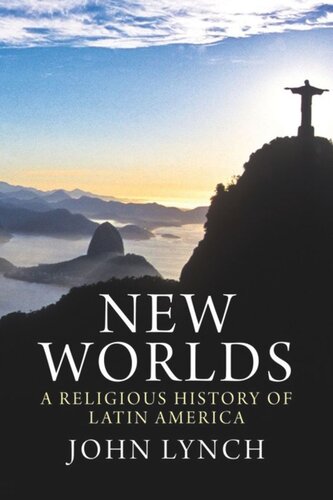

Most ebook files are in PDF format, so you can easily read them using various software such as Foxit Reader or directly on the Google Chrome browser.
Some ebook files are released by publishers in other formats such as .awz, .mobi, .epub, .fb2, etc. You may need to install specific software to read these formats on mobile/PC, such as Calibre.
Please read the tutorial at this link: https://ebookbell.com/faq
We offer FREE conversion to the popular formats you request; however, this may take some time. Therefore, right after payment, please email us, and we will try to provide the service as quickly as possible.
For some exceptional file formats or broken links (if any), please refrain from opening any disputes. Instead, email us first, and we will try to assist within a maximum of 6 hours.
EbookBell Team

4.0
66 reviewsThis extraordinary book encompasses the time period from the first Christian evangelists' arrival in Latin America to the dictators of the late twentieth century. With unsurpassed knowledge of Latin American history, John Lynch sets out to explore the reception of Christianity by native peoples and how it influenced their social and religious lives as the centuries passed. As attentive to modern times as to the colonial period, Lynch also explores the extent to which Indian religion and ancestral ways survived within the new Christian culture.
The book follows the development of religious culture over time by focusing on peak periods of change: the response of religion to the Enlightenment, the emergence of the Church from the wars of independence, the Romanization of Latin American religion as the papacy overtook the Spanish crown in effective control of the Church, the growing challenge of liberalism and the secular state, and in the twentieth century, military dictators' assaults on human rights. Throughout the narrative, Lynch develops a number of special themes and topics. Among these are the Spanish struggle for justice for Indians, the Church's position on slavery, the concept of popular religion as distinct from official religion, and the development of liberation theology.